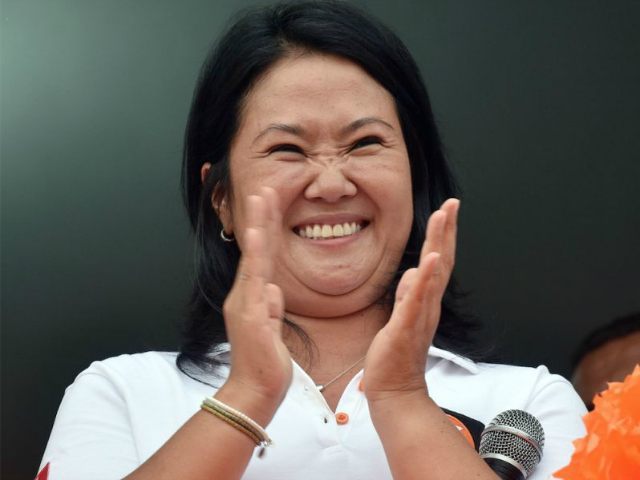Peru’s National Electoral Panel has eliminated two of the top three polling candidates for president in the nation’s upcoming elections, leaving center-right Senator Keiko Fujimori with a clear path to victory in April.
The nation’s electoral board eliminated candidates Julio Guzmán and César Acuña from the presidential ballot for violations of Peru’s electoral law. Acuña allegedly participated in the “prohibited conduct of handing out money during a campaign event,” while Guzmán’s party, Todos por el Perú (“Everyone for Peru”) stands accused of committing “grave and irreparable” violations of its own nomination rules.
Both are given the right to appeal the decision, and Guzmán has stated he has involved members of the Interamerican Commission of Human Rights to travel to Perú and investigate the incident. A spokesman for Todos por el Perú described the party as “truly impacted” by the “totally unjust” ruling, and Guzmán himself is calling for Fujimori to also be taken off the ballots, alleging that her party has made similar mistakes. “If their cases are not treated with the same criteria, the current election and potential elected authorities will be illegitimate,” he said following the announcement of his removal from the ballot.
Fujimori has remained mum regarding the elimination of her two greatest rivals, telling reporters that they can still appeal the decision and “what is important in any case is that we will live through a democratic process on April 10.” Only Alan García, former Peruvian president and currently the lowest-polling candidate in the race, has approved of the decision. “It is based on justice for one fundamental reason: laws are written to be followed,” he said of the electoral board’s disqualifications.
Guzmán was running second to Fujimori in the latest national polls with 18.3 percent to Fujimori’s 33.7 percent, the product of an extraordinary surge in the polls following months of polling in the single digits. Fujimori has been the frontrunner in the campaign for months; in January, she held 32 precent of the vote, with progressive candidate Acuña the only candidate to come close. At the time, Acuña was polling at 15.2 percent, with economist Pedro Pablo Kuczynski a distant third. Guzmán polled at 7.2 percent.
A new poll conducted by the firm Datum following the announcement of the two campaigns’ annulments find Fujimori receiving 37 percent of the vote, while Kuczynski is in second place with 14 percent. While a significant boost for Fujimori that all but guarantees her the win, Peru’s presidential election rules demand that candidates go to second run-off election should no candidate receive 50 percent of the vote. The second election would feature only the top two candidates in the first round of voting.
Fujimori has been a staple in Peruvian politics for decades. In addition to being a longtime Peruvian legislator, she served as First Lady of Peru in the 1990s at the behest of her father, President Alberto Fujimori, after her mother, Susana Higuchi, filed for divorce and ran a presidential campaign against her ex-husband. She was the runner-up in Peru’s 2011 elections, losing to left-wing candidate and current outgoing president Ollanta Humala.
